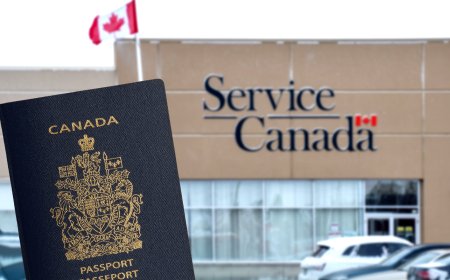Canada Limits Path to Permanent Residency: Is Your PR Path in Canada at Risk?
Canada’s changing immigration policies leave international students facing uncertainty, with expiring PGWPs and limited paths to permanent residency in 2024.

Canada has long been a favored destination for international students, offering the promise of a pathway to permanent residency through immigration programs. By the end of 2023, over 396,000 post-graduation work permits (PGWPs) had been issued to international students, marking a significant increase from 2018. Many of these graduates contribute to Canada's labor force, filling crucial roles across various sectors.
However, recent changes in immigration policies have left many international students, who have invested years in their education and work experience in Canada, facing uncertainty about their future. Canada’s immigration target for 2024 is set at around 305,000 under the economic immigration category, aiming to attract skilled workers.
Despite this goal, many temporary residents, including PGWP holders, find themselves excluded from the new criteria for permanent residency (PR), creating a sense of frustration and anxiety among those who had hoped to stay permanently.
The Changing Path to Permanent Residency for International Students
For years, the path to PR for international students seemed clear: complete a Canadian education, gain work experience, and transition to permanent residency. The introduction of PGWPs was seen as a key step in this process.
However, between 2021 and 2023, the landscape shifted. While Canada had granted PR to 90,000 temporary workers and PGWP holders during the pandemic to address labor shortages, these provisions were later revoked.
Moreover, the criteria for PR through the Express Entry system underwent significant changes. Priority began shifting toward French speakers and individuals in specific sectors such as healthcare, skilled trades, agriculture, transportation, and STEM fields, sidelining candidates with Canadian education and work experience.
As a result, many international graduates now face expiring PGWPs with limited options for permanent residency. Estimates suggest that between 70,000 and 130,000 PGWP holders could see their permits expire in 2024 and 2025, with little hope for visa extensions or PR invitations.
Human Impact of Policy Changes
These immigration policy shifts have left many international students and graduates in a state of limbo. After investing time and resources in building a life in Canada, they are now confronted with the possibility of having to leave the country.
With PGWPs expiring and no clear pathway to PR, the sense of uncertainty is widespread, particularly among those who believed that studying and working in Canada would lead to permanent residency.
The situation has also given rise to a growing concern about non-transparent PR selection processes. Many international graduates feel abandoned by the system, with no clear understanding of their chances of transitioning to permanent residency.
Exploitation and Scams
As desperation grows among PGWP holders, some are falling victim to exploitation. Unscrupulous recruiters are offering fraudulent job offers through the Labour Market Impact Assessment (LMIA) process, often charging exorbitant fees for promises of temporary work permits. These scams have added another layer of complexity to an already challenging situation for international graduates.
Temporary Solutions and Long-Term Challenges
In response to the rising number of international students and the strain on housing and infrastructure, the government has implemented measures like capping international student admissions and restricting PGWPs for certain private colleges. However, these changes fail to address the immediate concerns of expiring PGWPs and the lack of a clear path to PR for those already in the country.
While Canada’s immigration policy has been praised for its focus on economic integration, the recent changes have cast doubt on the country's commitment to international graduates. As thousands of skilled workers face the possibility of leaving, it’s clear that further action, whether through policy reform or visa extensions, is necessary to address the growing discontent among those who have contributed significantly to Canada’s economy and society.
The government must find solutions to honor the promises made to international students who chose Canada as their home, or risk losing valuable talent.
What's Your Reaction?
 Like
0
Like
0
 Dislike
0
Dislike
0
 Love
0
Love
0
 Funny
0
Funny
0
 Angry
0
Angry
0
 Sad
0
Sad
0
 Wow
0
Wow
0









































































